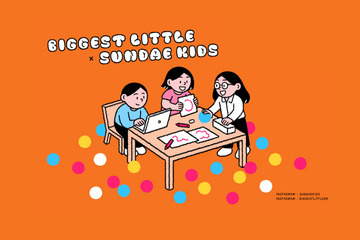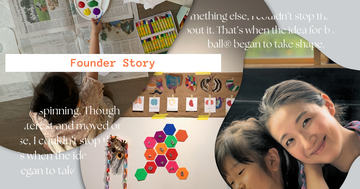A Perspective Shift on Open-Ended Play: Empowering Parents and Children
What is Open-Ended Play?
When we are giving children the freedom to explore, it’s essentially an open-ended play. Unlike close-ended play, which often comes with a set of instructions or expected outcomes, open-ended play encourages children to use their imagination, creativity, and problem-solving skills without any predefined rules or goals. It allows children to decide how to engage with their environment and materials, foster an unbounded exploration of their world, and create a narrative in a way that is uniquely their own.Letting Go of Control: The Challenge of Open-Ended Play
Raising children without imposing our rules and ways of living, freeing them from societal constraints, is much easier said than done. In our daily lives, we often adhere to rules and norms that dictate how things should be used and tasks should be done. Unconsciously, we pass these predetermined rules onto our children.
Asking parents to give up control is a daunting task. However, by helping you understand the 'why' behind it, we hope to provide you with a different perspective.
The Wisdom of Dr. Shefali
Dr. Shefali, a clinical psychologist and acclaimed author of The Conscious Parent, recognized as one of the foremost child experts by Oprah, someone that we deeply admire, advocates for a groundbreaking approach to parenting. She emphasizes that at its core, parenting is a journey of self-discovery for parents. According to Dr. Shefali, our perceptions are often shaped by societal norms, familial influences, and cultural conditioning. However, our children exist beyond these limitations. They possess boundless imaginations that transcend the confines of adult thinking.Play Reconsidered: Liberating Children's Imagination from Our Own Constraints and Expectations
Dr. Shefali’s argument offer new insight into how we can rethink open-ended play. While adults may perceive it as a structured activity with predetermined outcomes, children view it as an expansive exploration, brimming with infinite possibilities.
Consider the classic example of a box. To an adult, it’s just a container, but to a child, it can be anything—a spaceship, a fortress, a treasure chest. Another example is building blocks, which can be assembled into endless configurations to satisfy boundless imagination.
By liberating children from the constraints of our expectations, we not only nurture their curiosity and creativity but also cultivate a deeper appreciation for their individuality. Rather than viewing them as extensions of ourselves, we learn to see them as unique beings, fostering a more enriching parent-child relationship in the process.
As parents, stepping back and allowing our children to lead their play journey can be challenging at first, but you will find it to be a transformative experience, fostering a deeper connection with them and a better understanding of their world.
Now that we've explored why open-ended play is crucial for nurturing a child's imaginative mind and how we can shift our perspective to better understand this concept, Part 2 of this series will delve deeper into practical strategies for seamlessly integrating open-ended play into your family routine.





